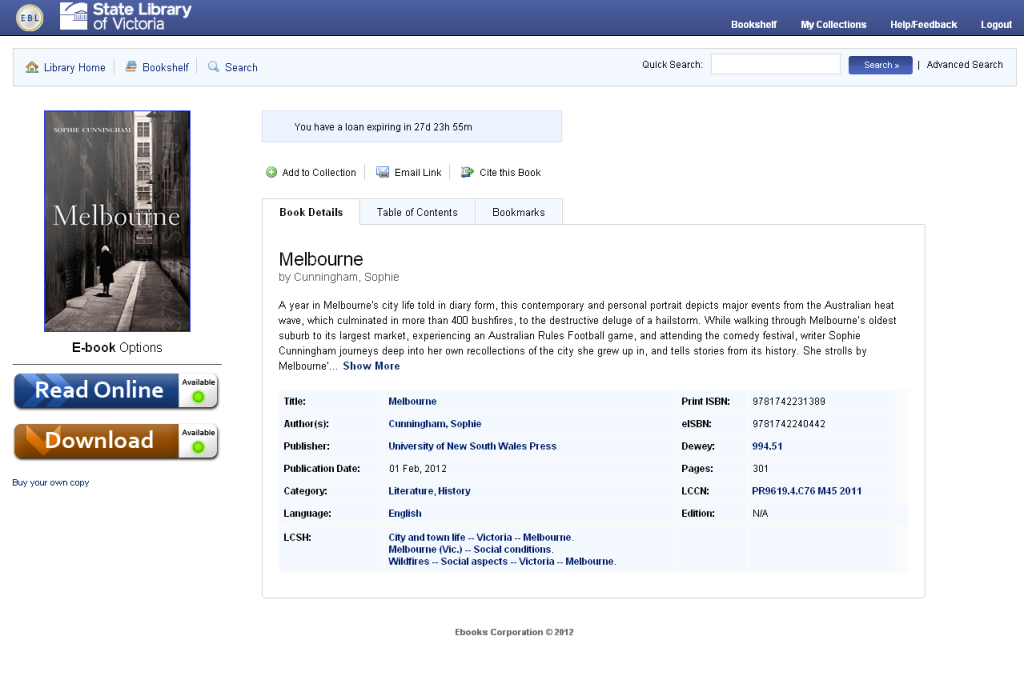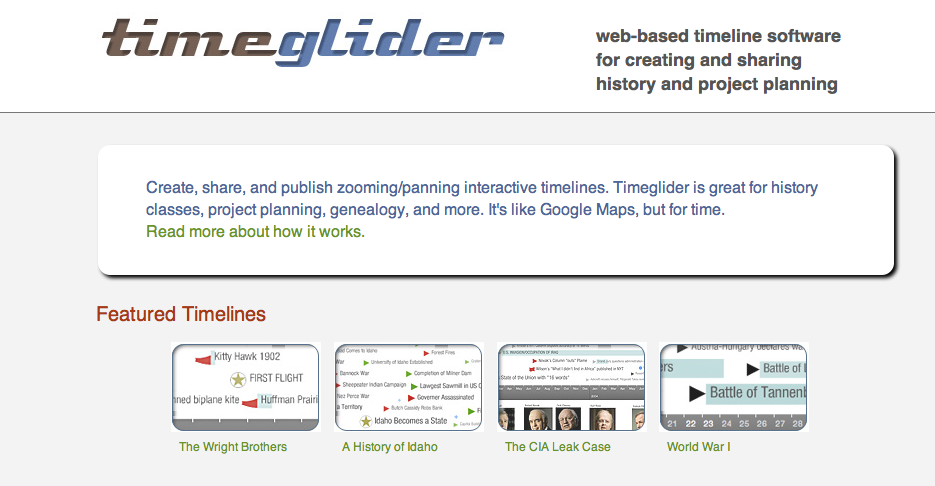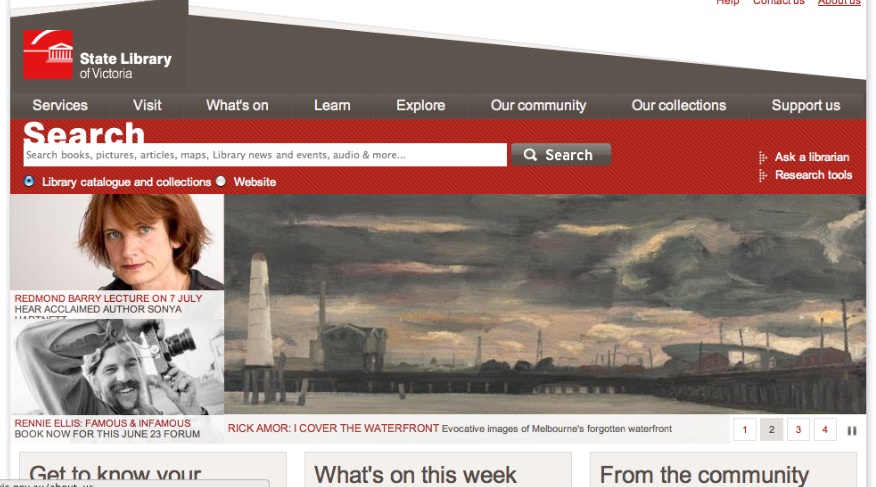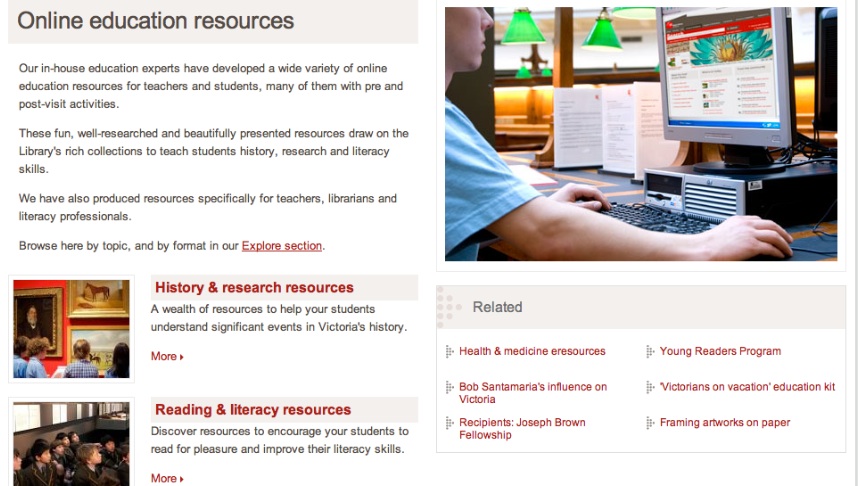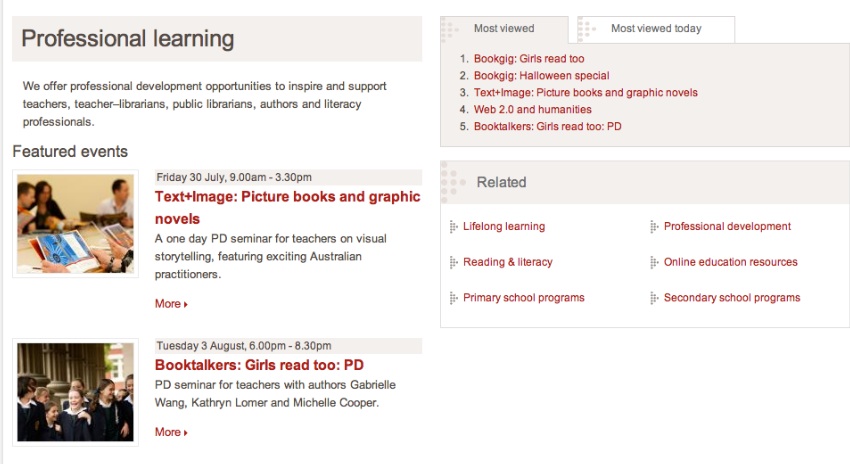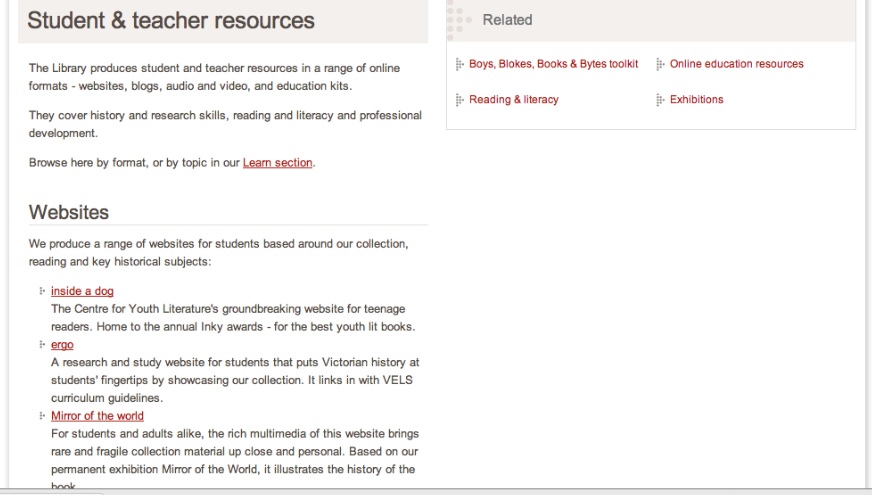Wheelers help turn new page at centre
JASON STEGER
November 27, 2009
WHEN Tony and Maureen Wheeler created their travel-book company at a kitchen table in 1972, they had no idea Lonely Planet would become one of the great Australian entrepreneurial success stories.
They certainly couldn’t have known that hundreds of journeys later it would lead to the centrepiece of Melbourne’s successful bid to become a UNESCO City of Literature being named after them.
But yesterday there was a new title page in the story of the Centre for Books, Writing and Ideas when it was renamed the Wheeler Centre: Books, Writing, Ideas.
The Wheelers, who sold 75 per cent of Lonely Planet to BBC Worldwide two years ago for about $200 million, have also made a substantial endowment to the centre, the income from which will be used to help fund the program of events when the centre opens next year.
The Wheelers have a philanthropic foundation, Planet Wheeler, that operates in the areas of child and maternal welfare, education and health care in South-East Asia and Africa.
Maureen Wheeler said when the idea of contributing to the centre was raised they decided it was a great way to give something back to Melbourne. ”We liked the idea immediately because it fitted in so much with the things we’re interested in. There isn’t anything like it in Australia and I love the fact that it’s in Melbourne.”
The Wheelers would not say how much their endowment was worth.
”When I compare it with what we started with, it’s a lot of money,” Mr Wheeler said. And Mrs Wheeler said, ”it was more than adequate”.
Centre director Chrissy Sharp said the substantial amount was a fantastic boon that eased the planning of events.
The centre also announced that its launch event would be held on February 13 – the anniversary of the Federal Government’s apology to the stolen generations – and would feature 12 writers telling stories that had been handed down to them through their families.
Among those taking part are David Malouf, Paul Kelly, Chloe Hooper, Alexis Wright, Christos Tsiolkas and Alex Miller. Ms Sharp said the centre’s full program would be unveiled in January.
The centre is based in a wing of the State Library of Victoria and, in addition to staging events, will provide a home for organisations such as the Melbourne Writers Festival, the Victorian Writers’ Centre and the Australian Poetry Centre.
Feisty, fabulous and full of ideas
Andrew Stephens
November 28, 2009
WHEN she was in her 20s, Chrissy Sharp strode into the Sydney offices of the then revered ABC documentary program Chequerboard and told them she wanted to work there. She had big ideas. ”I said, ‘I know I could work here: please give me a job.’ ” Sharp, who grew up in Canberra, had seen the indigenous tent embassy at Parliament House and she was in a lather to do something on it. Chequerboard, which tackled such thorny issues, took a risk and hired her as a researcher.
It was a lucky break – but then, she had been pushing for a while.
”There I was,” she says, ”at uni in Canberra, and I felt so guilty that I could be so aware of American civil rights but had never really, really, understood the plight of Aborigines. I thought, I’ve got to do something. I beleaguered Four Corners; but I was never a journalist, I wasn’t going to get a job on Four Corners – I used to get these responses saying, ‘Please apply to the typing pool.’ ” She pauses. ”And I couldn’t type.” So she went to Sydney for the old foot-in-door at Chequerboard.
These days, they come to her.
Here in her office in a wing of the State Library of Victoria – which houses the much-anticipated Wheeler Centre for Books, Writing, Ideas, where Sharp is inaugural director – she whips open a window to let the noise in. Clearly, she loves buzz and the flurry of creativity and – yes – the inevitable panic that her big new job attracts. So, windows open, that same sort of frenetic activity – the burble of trams, pedestrians and lunchtime conversations on the lawns below – filters up into her room. She thrives on it.
Chrissy Sharp, her husband, Michael Lynch, explains, is a truly formidable person. ”Woe betide anyone who gets in her way!” he laughs, uproariously. Not because she’s scary but because she’s full of warm, infectious energy; she gets things moving and she inspires loyalty. She’s immediately, immensely likeable. And very clever.
These two people have been described, rather lamely, as a ”power couple”, but there’s much more complexity and panache to it than that. You get the feeling – both of them have fantastic laughs, full of character – that they have enormous fun together when they meet up between the demanding tasks of their busy professional lives. There is, it seems, an authenticity of enjoyment about what they do and why they do it.
Last June, they arrived in Melbourne after about seven years in London, where Lynch was horrendously busy as chief executive of London arts hub the Southbank Centre; he had become one of England’s most admired and sparky arts administrators, overseeing the $260 million refurbishment of Royal Festival Hall. Sharp, who had previously been general manager of the Sydney Festival, had – of course – taken on a risky business there herself: trying to wrench ailing dance theatre Sadler’s Wells out of deep doldrums. She did more than that. By the time she left, it was the city’s pre-eminent dance outfit, with five successive surpluses and a quarter more attendees.
So it is hard to believe it when she reveals that, once upon a time, she ran a flower shop.
”It was such a long time ago, when I was a farmer’s wife,” she laughs. She had two sons in that marriage (she now has a stepdaughter, too), and a desire to open a flower shop in the NSW town near where they lived. ”It was very hard work. It meant twice a week driving down to the flower markets in Sydney and getting back by the time the shop opened. It was a lousy way to make money – but I was young. And very energetic.”
What’s changed? Now she is in full, energetic swing as director of the Wheeler Centre, her first job doing a start-up, from the ground up, with a small staff and – despite the Books and Writing bit in the centre’s title – a particularly deep interest in Ideas. Among the first people on her year-round program of events – it will be a festival that never stops – are ethicist/philosopher Peter Singer, US foreign affairs journalist Mark Danner and a top-notch panel teasing out the minefield of media ethics, led by former Ageeditor Michael Gawenda.
”The importance of cultural nourishment, whether it be through books or dance or music, is just vital, I think, to society, ” says Sharp, who has never lived in Melbourne but is agog at the depth of intellectual life she has discovered in just a few months. She wants the centre – named after Lonely Planet founders and philanthropists Tony and Maureen Wheeler, who have made a generous endowment – to be the sort of place where writers and thinkers talk about ideas, not just their own books. As Maureen Wheeler told one interviewer at this week’s announcement of the centre’s name, there were tough questions to ask before investing. But the Wheelers were very impressed with Sharp and with the concrete ideas behind it – it wasn’t, said Wheeler, the sort of ”arty” thing that says, ”Ideas, what are ideas?”
Indeed, Sharp is very pragmatic on this, noting that the recent economic downturn has provoked a lot of thinking about fundamental ethics and directions, a questioning of assumptions about endless growth and wealth. ”People from everywhere in society are interested in ideas,” she says. ”We want to take it into the town square, if you like, and bring some of our own fantastic thinkers who are in campuses around Melbourne or Australia, into a different kind of forum: where their ideas are accessible, where people get a familiarity, with not expecting it to be too high-brow, too rarefied or too boring. It’s got to be entertaining.”
The centre, housing the Melbourne Writers Festival, Victorian Writers Centre, Australian Poetry Centre and other literary organisations, was established after Melbourne won its bid for UNESCO City of Literature. It has a large performance space and workshop areas, where Sharp is planning forums that will spark debate.
”It seems I have yet to meet a person in Melbourne, especially women, who don’t belong to a book club,” she says. ”It – this city – seems to just absorb the idea of writing and the importance of books. It’s kind of a given, it seems to me. Everyone – my hairdresser! The guy who was painting the door the other day: I was sitting here talking to the chairman … and I mentioned [Orhan] Pamuk. [Later] the painter said, ‘I’m sorry, but I heard you talk about Pamuk.’ I asked him if he was Turkish; no, it was just that he and his wife lovePamuk. I love that! I was so impressed.”
She’s finding this all through Melbourne. ”It’s not just the job I’m doing: people do talk about the books they’re reading, or the ideas that they’d like to hear – they’re incredibly well informed. It is sucha writer’s place. Going out for lunch, there’s always some sort of fervent discussion about something to do with writing or books – it is a very intellectual city. Michael and I used to laugh about the fact that you’d come down from Sydney and you’d sit down to lunch and there’d be some intense” – she almost yells the word – ”argument going on. That is very Melbourne.”
There were some sour musings when Sharp’s appointment was announced last February: she, after all, is an outsider whose connection with the place had not extended much beyond holidays to aunts and grandparents here when she was a girl. Equally, though, she hadn’t set foot in Sydney until she was 16. But outsiders – she faced the same pursed lips when she took on Sadler’s Wells in London – often have the clearest view of what’s going on in a place and the sort of unsentimental temerity to get things done. She proved that at Sadler’s Wells as general manager alongside artistic director Alistair Spalding, and she looks like doing so here with her winning combination of financial and staff management, plus artistic, creative flair.
Lynch is droll about her dynamism. ”Much too much energy for my liking,” he says. ”I think she approaches life very full-on – they are lucky to have someone with the attention to detail and the energy that she brings to it. That’s going to stand the organisation in quite good stead. And she does command hugely loyal groups of people working with her. I’m not sure I would have quite had the energy at my flagging point in life to do it, but she seems to have driven herself day and night to make sure they could realise the potential of the idea.”
Lynch says he and Sharp worked amazingly hard in London. ”I dragged her to England to back me up, but she didn’t want to play dutiful wife entirely, so she took on Sadler’s Wells. I thought it was my turn to be a little more supportive and a little less demanding, with her being in this new role. Being in a new town, she has sent me out to find the house and do those sorts of things.”
While she has never worked with her husband, who has joined the ABC board, the two, he says, had one notoriously amusing conflict of interests some years ago when she was representing actors in the Media, Entertainment and Arts Alliance and he was running the Sydney Theatre Company.
”This was sort of indicative of her hide,” he confides, laughing. ”The actors’ union were taking industrial action against all of the major theatre companies, so she led a picket line outside one of our opening nights in Sydney. I was standing inside and she blandished kisses at me and said, ‘Come out and talk to me!’ I had to say, ‘No darling, I never cross picket lines. Even for my dear wife.’ She’s always been a feisty woman in that respect.”
SHARP grew up in a family where books were at the centre of things and she says that anyone who knows her isn’t surprised she has ended up heading a centre concerned with writing and ideas.
”My intellectual life for most of my childhood was books and music, inevitably,” she says. Her father, Ted Hannan, was a highly acclaimed professor of statistics at ANU, a man described by one biographer as ”outspoken, frequently irreverent” but ”transparently honest”.
”And my mother just loved music. My father’s interests, apart from mathematics, were very much history, biography and poetry, and it was my mother who introduced me to the whole canon of 20th-century American writers, in particular, and of Australian writers. It was very much a household that talked about books all the time. Then I went to university, started doing literature and history and ended up doing honours in history with Manning Clark, who’s very much a literary person. So books and literature and history were my forming influences.”
But she says that while it was her dream at university to become a writer, she has since found she is ” the one person who doesn’t have a novel in me.
”I realised in my early 30s, no I don’t think I have a novel to give the world, not of any great interest or importance. I am lucky having realised that at a reasonably early age – to have [since] been in positions where I can enable arts has been incredibly satisfying. I have been around enough to know that the people who do the hard work are the creators. They’re the ones that I hold on a pedestal.”
Lynch, it seems, might hold her there, though. ”Formidably smart,” he says. ”She scared me for many years on that front. She’s always been the one who’s read the books and had the brain and she’s always been a formidable person to argue, discuss or engage with. And I think she’s really thrilled [with her job]: books have always been a passion but she’s always been very good on ideas.” And at putting them into action.
A very exciting time for those of us passionate about books, writing and ideas.


